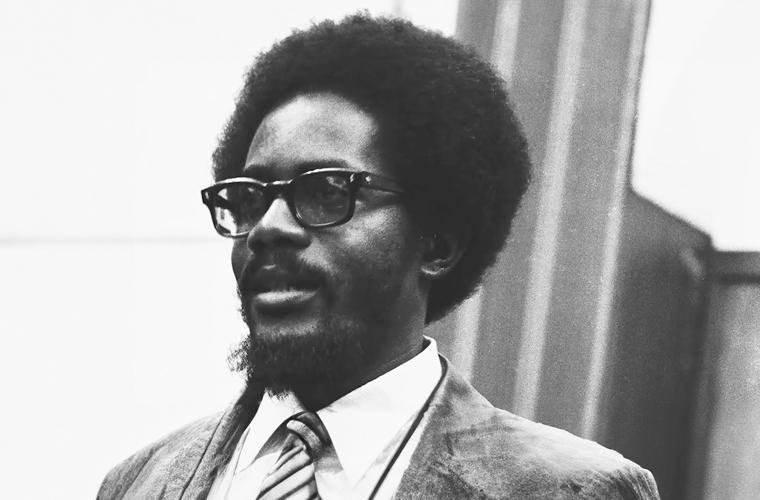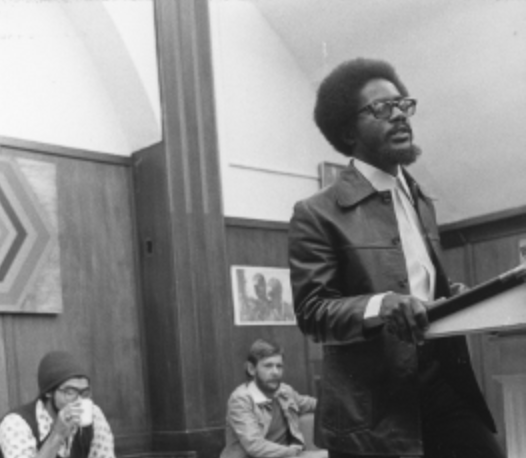Colonialism never presents itself in its true, predatory form. It masks itself as an open hand, a benevolent force of intervention, even a civilising factor, when in truth it seeks nothing but the subjugation and exploitation of its target group for financial and political gain. Walter Rodney, a prominent West Indian Pan-Africanist, speaker and author, wrote extensively on the cyclical nature of colonialism, wherein it initially appears as a well-meaning involvement in the politics of a nation only to decisively hinder, or altogether sabotage the development of a victimised people. Rodney commonly refers to the case of the Congo, where the cycle can be seen initially through the initial interactions between the Kingdom of Kongo and Portugal, again the intervention of King Leopold and the following atrocities committed under the Congo Free state, once more with The Belgian Congo and finally reappearing with the assassination of Lumumba. Utilising Rodney’s writing, the cycle of colonialism can be observed once more with current events in the DRC and the states diplomacy with Rwanda and Uganda, where exploitative intentions are once more disguised under thin veils of righteousness.
For background, it is important to understand who Walter Rodney was both as a thinker and a person. Rodney was born in Georgetown, Guyana on the 23rd of March 1942, growing up during the country’s anti-colonial movement, led by the People’s Progressive party. Rodney’s own father was a member, providing him with an early exposure to the Marxist-aligned thought of the party. Rodney had an incredible academic upbringing attending Queen’s College, the most prestigious boys’ school in Guyana, winning an open scholarship studying undergraduate studies at the University of West Indies, Jamaica. In 1963, Rodney graduated with First Class Honors BA in History, moving across the Atlantic to London shortly after to study at the School of Oriental and African Studies (SOAS) for postgraduate studies, where he graduated at 24 with a PhD with Honors in African history. During his time in the UK, Rodney was mentored by CLR James and was an active member of the CLR James study group, emboldening his Marxist-leanings and fostering the development of his pan-Africanist thought. Rodney’s first teaching job stationed him in the University of Dar es Salaam in Tanzania in 1966, the city of Dar es Salaam being the base of many exiled African liberation movements such as the ANC (South Africa), FRELIMO (Mozambique) and the MPLA (Angola). Here, our thinker fully developed his Pan-Africanist perspective, which mixed with his Marxist upbringing to create his life-long anti-colonial thought. Rodney made significant efforts to empower the marginalized and impoverished, teaching working class people in depressed parts of Kingston and rural areas of Jamaica in 1968 to build Black solidarity and protest the growingly authoritarian government. For this, Rodney was banned from Jamaica, returning to Dar es Salaam in 1969 where he published his famous book “How Europe Underdeveloped Africa” among other revered works. In 1974, Rodney returned to Guyana amid conflict between the East Indian based Peoples Progressive Party (PPP) and African based Peoples National Congress (PNC) to assume an open professor position but was barred by the PNC Government, which saw him as a dangerous radical. This pushed Rodney to join the newly formed Working People’s Alliance (WPA), which campaigned against the PNC’s growing authoritarianism and offered a non-racial approach to a growingly racialised political climate. Rodney increasingly became a leading figure of the WPA, culminating in his state-ordered assassination by the PNC via car bombing on Friday the 13th of June 1980. Despite his life being cut short, Rodney’s works are still highly revered within pan-African and anti-colonial groups for their powerful messaging and detailed analysis of colonial systems.
Rodney’s references to the Congo comment on the cyclical nature of colonialism within the country, where colonial agents put on a façade of benevolence to get close to key actors and exploit gaps or tensions in indigenous state structures for material gain. This phenomenon can be observed first in interactions between the Kingdom of Kongo and Europe. In the wider colonial context Europe portrayed its emissaries in Africa as “explorers and missionaries bringing civilisation to the natives”, an image while appealing to many African rulers at the time such as the King of Kongo, is recognisably problematic today, as Rodney comments “There was a large and well-developed Congolese empire before the white man reached Africa.” Beneath this portrayal lay predatory interest, wherein Europe only really sought to ensure a secure stream of gold and revenues which they would use to power the colonial machine in the Americas, all the while keeping Africa in a vulnerable artificial position behind the rest of the world. Particularly, the nations of Europe asserted themselves as the middlemen of intra-African trade, exchanging their cheap and outdated consumer goods for African goods and trading them with other African states in the stead of their original traders, removing African financial independence and rendering them much weaker in the face of growing European demands. This also meant that Europeans could fill their slave ships with little cost to actual European resources. In the case of the Kongo, requests for European masons, priests, clerks, and physicians were met with Portuguese coercions to provide slaves. These pressures only worsened as Europe quickly began exploiting contradictions and contentions within the structure of the Kongo to “play one part of the Kongo kingdom against another”, filling their slave ship holds with prisoners of war as warring sides became desperate for funding to continue their long and tiring conflicts.
The cycle can be seen repeating once more during the rule of King Leopold, who took over the Congo under the guise of an anti-slavery mission against perceived slaver kings in Africa despite the European origins to the trade. In truth, King Leopold was a representative for a myriad of European nations interested in exploiting the Congo for its gold, copper, ivory, and rubber, with the anti-slavery mission giving Europe a larger license to exercise control over the Congolese state. King Leopold’s ‘benevolent’ rule over the Congo, was especially brutal, repressive, and greed-ridden, with its “labour policies” for Congolese workers masking horrific atrocities, such as mass mutilations, massacres and famines, inciting humanitarian outcries even from other European nations. King Leopold only expressed disdain at the widespread practice of removing hands of workers who did not meet quotas, complaining about how removing hands harmed his profits. At times more than a third of the capital produced in the Congo went out in the forms of profits for European businesses, all too often at the cost of Congolese lives, dignity, and freedom. By 1906, King Leopold himself had made at least $20 million from rubber and ivory trade in the Congo, highlighting the real, financial reasons for his imposition on the Congolese people and his continued support by Europe. The later Belgian annexation of the Congo Free state in 1908, while supposedly conducted in response to international pressure on the exploitation committed under King Leopold II, was only supported by Europe as Leopold had violated the agreements on free trade, once again showing the predatory interests hiding behind the noble projections of European intervention in Africa.

In the case of Lumumba and the Congo crisis, Rodney observes how the Congolese people had regained their political independence and reclaimed the political power of governing their own affairs that had been previously lost to white imperialism. The presence of anti-western and non-Eurocentric sentiments in Lumumba’s government concerned the West, sparking fears particularly within the US who saw a potential for communist/soviet influence in the Congo. There were also fears that these anti-western sentiments would push western companies out of lucrative areas in the Congo, especially Katanga, which was rich in copper, cobalt, and uranium. Belgium and its mining companies were distinctly worried by the possibility of losing access to these resources, resultantly supporting Moise Tshombe and the secession of Katanga through military training and deploying troops to ensure continued access to their mines and minerals. Outwardly, Belgium stated they had intervened to keep the peace and support their ally, hiding their financial angle in supporting Katanga. From this we can once again observe the cycle of colonists hiding their true intentions behind peaceful, noble causes depicted by Rodney.
Utilising Rodney’s analysis, one needs to approach the current crisis cautiously. Given the history of external actors and agents of colonialism saying one thing and doing another, the stated missions of all relevant forces in the ongoing conflict must be criticised; Is Rwanda really enacting ‘defensive measures’ when there is looming evidence of the state looting resources from the DRC and assisting the M23 group in their operations in the east? Are Uganda’s insistences that they both are protecting themselves from the chaos of the Congo and assisting in the fight against Rwanda factual when there are accusations of the army plundering gold and violating the rights of civilians? Is the UN telling the truth about the intent of MONUSCO when they have ignored multiple requests by the Congolese government for withdrawal and repeatedly fail to prevent conflict and arms proliferation? The cycle of colonialism has plagued the Congo since the first interactions between the Kingdom and European merchants and has stalked the progression of the country into the modern day. For the sake of Congolese livelihood, dignity and freedom, the cycle must be broken, and that starts with measuring what actors say against what they do in today’s conflict.
Written by Alex Temmink


